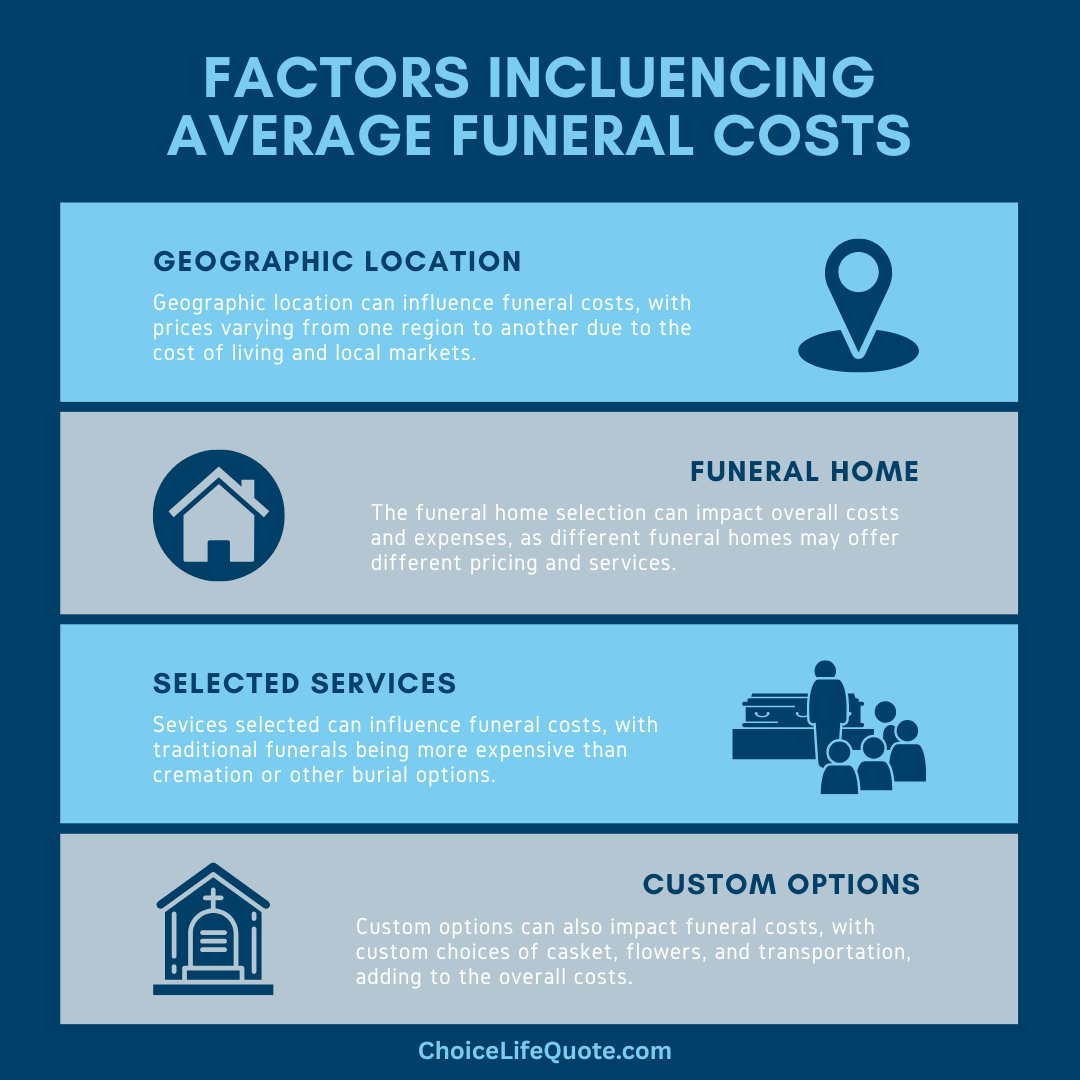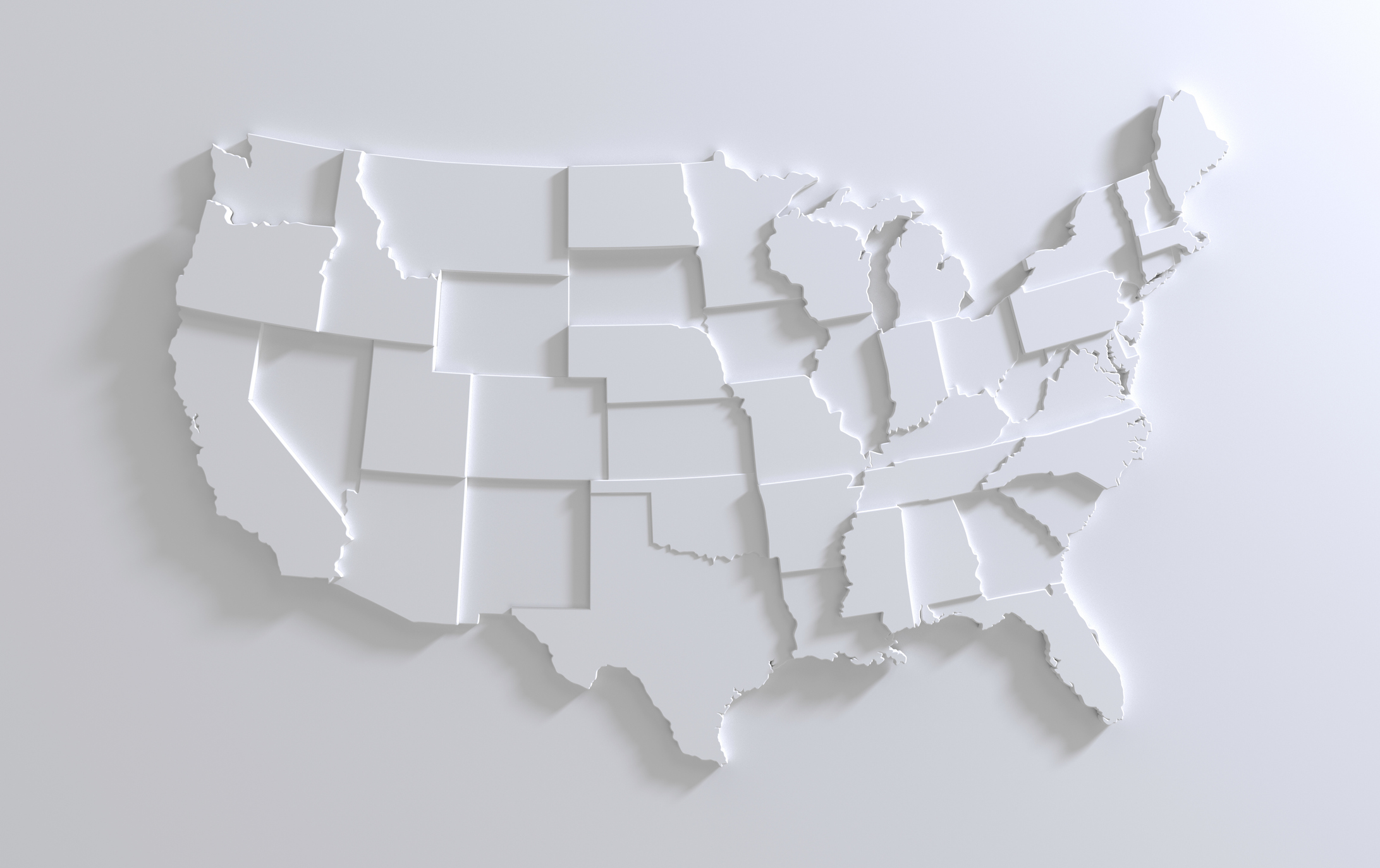Understanding Average Funeral Costs

The cost of a funeral can be a significant financial burden during an already difficult time. That's why it's essential to understand exactly what you're looking at in terms of expenses. From caskets to burial plots, or embalming to memorial services, funeral costs can quickly add up. By understanding the average costs involved, you can tailor the funeral arrangements to best reflect your loved one's memory without breaking the bank.
This article provides insight into the elements influencing average funeral costs, giving you the information needed to make informed decisions in planning a funeral and final expenses.
Understanding Funeral Costs
Funeral costs encompass a wide range of expenses, from the basics like caskets and burial plots to more intricate details like embalming and memorial services.
By understanding the breakdown of these costs, you can gain increased clarity on what to expect and make informed choices while planning a loved one's funeral.

Factors Influencing Funeral Costs
Several factors can influence the cost of a funeral. These factors include geographic location, the funeral home you choose, the type of service you select, and the desired level of customization. While our loved ones deserve to have the best celebration of life possible, it can also be important to manage expenses.
Understanding these factors can help you make decisions that align with your budget and preferences. Geographic location can play a significant role in funeral costs. Prices can vary widely from one region to another due to variations in the cost of living.
Additionally, the funeral home you select can impact overall costs, as different funeral homes may have different pricing structures and service offerings. The type of funeral services selected can also significantly influence overall costs and expenses. Traditional funerals, which typically involve embalming, viewing, funeral service, and burial, tend to be more expensive than alternative options such as cremation or green burials.

Average Funeral Costs by Region
The average cost of a funeral can vary significantly depending on the region in which you reside. To give you a better understanding of what to expect, let’s explore the average funeral costs in different regions. In the United States, the average cost of a funeral ranges from $7,000 to $12,000.
However, this figure can be higher or lower depending on the specific location. For example, funerals in metropolitan areas or regions with a high cost of living tend to be more expensive than those in rural areas. In researching regional funeral costs it can be helpful to review independent sources such as Funeralocity.com, a leading consumer advocate website. To view average funeral costs and expenses by state please click the image below.
Traditional Funeral vs. Alternative Options
While traditional funerals are routinely the norm, alternative options are gaining popularity due to their lower costs and environmental considerations. Let's compare traditional funerals to some of these alternative options.
Traditional funerals often involve a series of events, including a wake or visitation, a funeral service, and a burial or cremation. These services can be costly, especially when considering factors like embalming, caskets, and cemetery fees.
Alternatively, direct cremation offers a more affordable option. With direct cremation, the body is cremated shortly after death, without embalming or a formal funeral service. This option allows for flexibility in planning memorial services and can significantly reduce costs.
Green burials are another alternative option that focuses on minimizing the environmental impact of the funeral process. These burials often involve biodegradable caskets or shrouds and avoid the use of embalming chemicals. Green burials can be more affordable than traditional funerals, while also providing a more eco-friendly approach.
Funeral Insurance and Pre-planning
Planning for your funeral expenses in advance can help to alleviate financial stress during an already difficult time for your family and friends.
Funeral insurance, also known as burial insurance or final expense life insurance, is designed specifically to provide coverage specifically to cover funeral costs and other final expenses.

By purchasing funeral insurance, you can ensure that funds are available to cover funeral expenses when the time comes. Pre-planning your funeral is another option to consider. By pre-planning, you can make decisions about your funeral arrangements in advance, including the type of service, casket, and burial plot. This allows you to lock in current prices and potentially save on future price increases.
Questions When Planning a Funeral
When planning a funeral, it's crucial to ask the right questions to ensure you have a clear understanding of the costs involved. Here are some key questions to ask:
- What are the itemized costs for each service and product?
- Are there any additional fees or charges not included in the initial quote?
- Can I customize the services to fit my budget?
- Are there any payment options or financing available?
- What happens if I change my mind about certain services or products?
Asking these questions will help you make well-informed decisions and avoid any unexpected financial surprises.
Resources for Funeral Assistance
For individuals facing financial hardship, several resources are available to provide financial assistance with funeral costs. These resources include:
- Social Security Survivor Benefits: Surviving family members may be eligible for a one-time payment from the Social Security Administration to help cover funeral expenses.
- Veteran's Benefits: Veterans and their families may be entitled to financial assistance through the Department of Veterans Affairs.
- Charitable Organizations: Many charitable organizations provide assistance to families in need, specifically for funeral expenses.
- Crowdfunding: Online crowdfunding platforms can be a useful tool for raising funds to cover funeral costs. Share your story and gather support from the community.
- State and Local Programs: Some state and local governments offer financial assistance programs for individuals who cannot afford funeral expenses.
Funeral Planning Considerations
While funeral costs are a significant consideration, it's also essential to address the emotional and practical aspects of funeral planning. Planning a funeral is a deeply personal process that involves honoring and celebrating the life of a loved one. Consider the wishes and preferences of the deceased, as well as those of the immediate family. Discussing funeral arrangements openly can help ensure that everyone's needs and desires are met.
Beyond the financial aspects, funeral planning involves decisions about the type of service, the choice of music, readings, and other personal touches that reflect the unique life of the individual being honored. Taking the time to personalize the funeral can provide comfort and closure for family and friends.
Conclusion
In conclusion, planning a funeral can be emotionally challenging, and the financial burden can add additional stress. However, by understanding average funeral costs, considering alternative options, and exploring ways to save, you can honor your loved ones without breaking the bank. Remember to ask the right questions, explore resources for financial assistance, and consider final expense or burial insurance to alleviate future financial strain.
Our team can assist in choosing the right type of policy, an appropriate amount of coverage, and the best insurance company for your individual situation. Get quality coverage at affordable rates. Give us a call at (800) 770-8229, or request an instant quote today!
Disclaimer: Information is intended to be educational in nature and should not be considered financial, tax, or legal advice. Please consult a qualified professional for individual assistance.
The Staff Writers at ChoiceLifeQuote.com are insurance and financial services professionals with significant industry experience. The team’s experience and expertise help to provide consumers with a variety of educational content related to life insurance and annuities.



